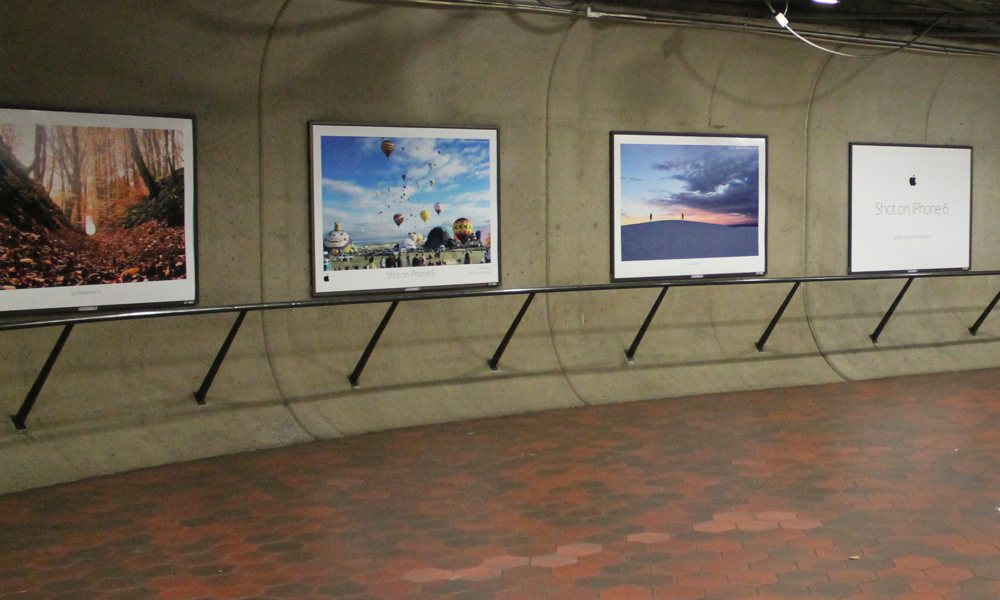Amidst Artist Backlash, Apple Agrees to Pay for Winning Photos in its ‘Shot on iPhone’ Contest
 Credit: Flickr / Elvert Barnes / CC BY-SA 2.0
Credit: Flickr / Elvert Barnes / CC BY-SA 2.0Toggle Dark Mode
Earlier this week, Apple announced that it would be running a new Shot on iPhone challenge, directly inviting members of the public to submit photos for the 2019 version of its iPhone photography-focused marketing campaign. Unlike in previous years, where Apple contacted photographers privately, the new campaign called on any aspiring iPhone photographers to submit photos via Twitter, Instagram, Weibo, or email that would then be judged by a panel of eleven renowned photographers and Apple employees, with the winning photos to appear on Apple’s website, on public billboards, and in other marketing campaigns.
However, the original contest and its accompanying rules provided no indication that photographers would be compensated in any way for the use of their winning photos, implying that Apple providing exposure for the photographers should suffice. Further, the rules of the contest didn’t even provide a guarantee that photos would be properly credited to the original photographers, simply stating that the format of the photo credit would be “decided by Apple in its sole discretion.” In prior Shot on iPhone campaigns, this has taken the form of only the photographer’s first name and last initial.
Perhaps not surprisingly, members of the artistic community responded both quickly and negatively to the idea that the world’s most valuable company was, in essence, looking for a source of free photos for its massive marketing campaign — a campaign that Apple undoubtedly also expects to make billions in revenue from.
In an e-mail to The Verge, artist community activist Timothy Reynolds suggested that Apple was being disingenuous by attempting to “spin it as a ‘challenge'” in order to avoid having to pay for photos.
Anything less than paying people for their usage is pure exploitation. The rules [and] conditions are gross, and that’s what I wanted to bring attention to — the fact that they’re robbing you blind of your rights and ability to be properly compensated for the work by simply submitting.
Timothy J. Reynolds, via The Verge
Other members of the artistic community also weighed in, including an open letter to Tim Cook on Reddit calling on Apple to offer prize money proportionate to the amount of advertising that the ten winning photos will appear in, and adding that even a modest payment of $10,000 by Apple for each photograph would be “chump change” to what the images would do to encourage iPhone sales.
While Apple didn’t respond to any of these comments directly, the company quietly updated its news release last night, adding that “Apple believes strongly that artists should be compensated for their work. Photographers who shoot the final 10 winning photos will receive a licensing fee for use of such photos on billboards and other Apple marketing channels.”
Apple also made similar changes to the contest rules, along with a new clause that, while the company still retains sole discretion on the format of the photographer credit, credit will be given “in such a way to protect entrant’s moral rights.”
Despite this, however, a number of clauses remain in the rules that may still concern artists and photographers, including consent to Apple “dealing with their Submission in any way that may otherwise infringe the entrant’s moral rights.” More notably, the rules also still include a clause that gives Apple full rights to use, reproduce, publish, and display any photo submitted to the contest in any form “for the purposes of implementing the contest”; Apple only promises that it will pay licensing fees for the ten winning photos. While this is likely just a legalese oversight on Apple’s part, it does technically mean that non-winning photos could still be used by Apple in news releases and on Apple’s website to help promote the contest, without Apple required to make any royalty payments for those photos unless they’re selected as winners.
Apple has naturally not commented on whether it had intended to pay artists from the beginning, but it seems very likely that this move is a tacit response to criticism by the artistic community, and it’s not the first time that Apple has tried to shirk royalty payments. The company was famously called out by Taylor Swift when Apple Music launched three years ago for not agreeing to pay artist royalties on music that was consumed during the service’s three-month trial period — a move that provoked a remarkably swift response from Apple, with Senior VP Eddy Cue announcing the reversal of Apple’s position less than 24 hours later.






